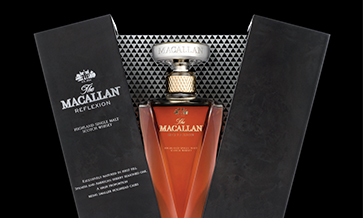The Managing Partner of Ironhill India, Teja Chekuri is a global restauranter who has been running unique restaurant chains across the world. A food-loving entrepreneur, he plans to expand the footprint of his craft beer from Ironhill micro-breweries across India in the near future, a work in progress. Teja holds several board level positions in different companies and has now consolidated all his brands under the umbrella of Full Stack Ventures.
Hello Teja! Could you take us on a brief trip about your love of food and beverages?
During the 16 years I spent in the US, I co-founded the Godavari group of restaurants in 21 locations across that country, which became our flagship. We also launched Madras Dosa Co., 1947: Truly Indian, Vaanga, and an Indian gastro-bar, Don’t Tell Aunty, in Boston.
We also run South Indian specialty restaurants, United Telugu Kitchen, in Vijayawada, Hyderabad and Bengaluru. Our latest launch is Ishtaa, pure vegetarian fine dining restaurants in Hyderabad and Bengaluru. Both these brands will now see more franchisees across the country.
My partners and I launched Prost brew pub in Bengaluru (Mahadevpura) in 2012 with a largely Continental food menu and followed it up with another one in Hyderabad (Jubilee Hills). Prost has a very urban, Westernised feel to it, well suited to its clientele in these cities. But I wanted to discover our wide range of local flavours and experiment to create unique mixes with Indian spices to bring about an interesting experience for beer connoisseurs.
Why craft beer?
When we started, the micro-brewery and craft beer footprint was limited to Pune, Gurugram and Bengaluru. That gave us the advantage of being an early mover. Today craft beer is growing fast. You already have 85-odd micro-breweries in Bengaluru alone – and more joining every quarter. With growing demand, there is a need to add capacities.
At present, we are also into fine dining, micro-breweries, full-fledged spirits bars and quick service restaurants.
How did Ironhill come about? Why did you choose tier-2 cities to launch the chain? What were your chances of success?
Alcohol consumption in India has several layers of cultural connotations. Some decades ago, watching a movie and eating out in restaurants were the only sources of family entertainment. With increase in domestic and foreign travel came the concept of enjoying beer, wine and spirits together – it is now no longer taboo.
The tier-2 cities were largely untapped. In Andhra Pradesh and Telangana, we saw how people with money to spend used to book hotels and arrive in Hyderabad over a weekend, to sample and savour craft beer together. We felt they were spending way more than if they had the beverage and food options available to them in their hometowns. That is when we decided to go to them!
The concept of Ironhill is simple: the best of low-ABV craft beverages, along with their favourite regional cuisine. We launched the first micro-brewery in Vizag and Vijaywada, followed by Hyderabad, Bengaluru, Rajahmundry and Nellore. We are expanding out footprint to kanakpura Road and Yeshwantpur (Bengaluru) and Nagpur (Maharashtra) by the year end.
In tier-2 cities the capital and operational expenses are relatively low, rentals are low, making it a sustainable business proposition.
What is your ‘Beerish’ project all about?
Under the Ironhill umbrella, we plan to set up a commercial-scale brewery near Bengaluru, to help us open and service Ironhill taprooms – on Sarjapur Road (Bengaluru), Kodagu and Mysuru for beginners – and later across India. These are areas in which it will not be possible to replicate the Ironhill micro-brewery model.
That said, the first ‘Beerish’ taproom launch might happen in Mumbai and Nagpur, where we are setting up Ironhill micro-breweries! The Maharashtra excise policy permits micro-breweries to pour on premises and supply bottles and kegs to other licensed outlets. We expect to pour our first pints before the end of 2026.

Ironhill’s large size is not suited to all markets; but where it fits, the high footfalls bring in revenue.
How does the size of Ironhill micro-breweries matter?
We started this ‘size’ competition in Bengaluru (chuckles)! But not all markets are suited to it. Our big size is not a template – it doesn’t work in Hyderabad; it will not work in the Central Business District in Bengaluru, for example. Size matters only if the footfalls are high.
At Ironhill Bengaluru, on weekends, we have people queuing for hours for a spot reservation. It is this high footfall that brings in revenues. Our ‘Beerish’ taprooms, on the other hand, will be roughly 4,000 square feet each.
Can you talk about craft beer markets and the business models across India?
The markets in North India – even the National Capital Region of Delhi – are largely high-ABV spirits consumers. In the South, you have a larger social and conversational culture around drinking; so, people prefer low ABV beverages such as beer.
In a huge market such as Mumbai, the floor size is small, and rentals are sky-high. That hikes up operational costs substantially. However, relaxation in brewing rules permits the establishment of larger micro-breweries in its suburbs. One can also keg your beer to taprooms and pubs in the middle of Mumbai.
The business models would depend on whether you are going to run it as a business or have a vision to expand your business and brand’s footprint. That, added to your customers’ likes and dislikes, would decide your business strategy, investment in technology and thirst for craft recipes.
Could you explain your business interests, and interest in F&B?
I am a financing partner on an investment platform called We Founder Circle. One of our subsidiaries is EvolvEx, an industry-agnostic startup incubator. However, with my obvious interests, I love to invest in research and experimentation in food and beverages, be it craft or fast-moving consumer goods. In other words, I put my money in people’s mouths!














